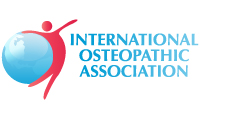Every member of International Osteopathic Association (IOA) is required to ensure that patient consent to any treatment and that the consent is fully informed, voluntarily given, related to the patient’s condition and circumstances, not obtained through fraud or misrepresentations; and it is evidenced in a written form signed by the patient or otherwise documented in the patient record.
Manual osteopaths shall recognise that consent is an ongoing and evolving process involving ongoing discussions with a patient and not a single event of a patient’s signature on a consent form. If the manual osteopath recommends a new treatment, there are significant changes in a patient’s condition, or there are significant changes in the material risks to a patient, the member shall continue to dialogue with the patient about the material risks, benefits and side-effects of the recommended treatment, including potential risks that may be of a special or unusual nature, and shall document those discussions in the patient's chart.
During discussions, members shall provide patients with an opportunity to ask questions concerning the proposed treatment and shall answer questions prior to the commencement of the treatment.
Patients may withdraw their consent to any treatment at any time.
The Health Care Consent Act does not identify an age at which minors may exercise independent consent for health care because it is accepted that the capacity to exercise independent judgment for health care decisions varies according to the individual and the complexity of the decision at hand. Members are encouraged to seek consent from the appropriate parent or guardian to treat children who do not clearly have the capacity to consent to a treatment.
Consent Guideline
Ensure patient consent to any treatment and that the consent is fully informed.

